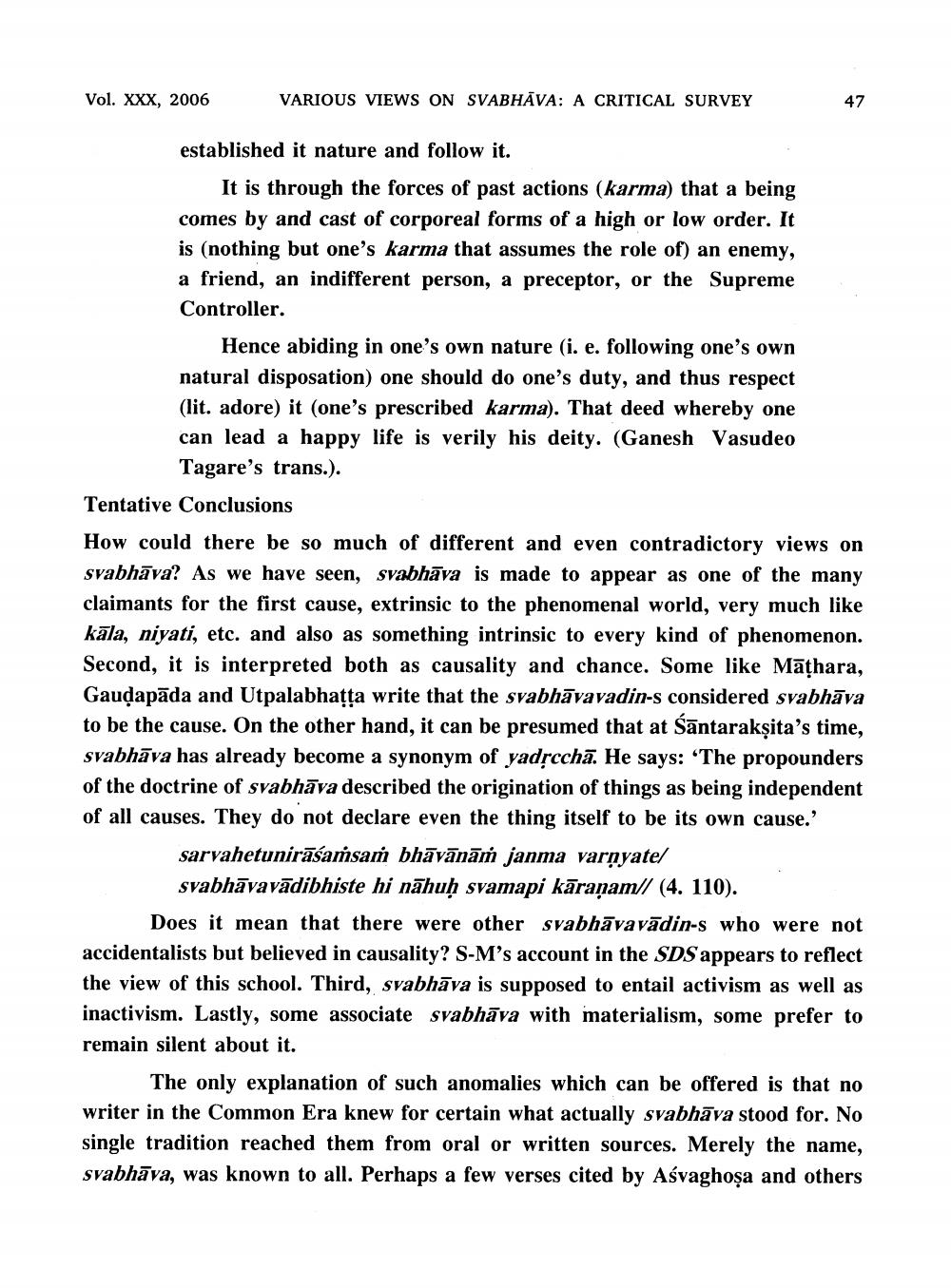________________
Vol. XXX, 2006
VARIOUS VIEWS ON SVABHAVA: A CRITICAL SURVEY
47
established it nature and follow it.
It is through the forces of past actions (karma) that a being comes by and cast of corporeal forms of a high or low order. It is (nothing but one's karma that assumes the role of) an enemy, a friend, an indifferent person, a preceptor, or the Supreme Controller.
Hence abiding in one's own nature (i. e. following one's own natural disposation) one should do one's duty, and thus respect (lit. adore) it (one's prescribed karma). That deed whereby one can lead a happy life is verily his deity. (Ganesh Vasudeo
Tagare's trans.). Tentative Conclusions How could there be so much of different and even contradictory views on svabhāva? As we have seen, svabhāva is made to appear as one of the many claimants for the first cause, extrinsic to the phenomenal world, very much like kāla, niyati, etc. and also as something intrinsic to every kind of phenomenon. Second, it is interpreted both as causality and chance. Some like Māțhara, Gaudapāda and Utpalabhatta write that the svabhāvavadin-s considered svabhāva to be the cause. On the other hand, it can be presumed that at śāntarakṣita's time, svabhāva has already become a synonym of yadşcchā. He says: "The propounders of the doctrine of svabhāva described the origination of things as being independent of all causes. They do not declare even the thing itself to be its own cause.'
sarvahetunirāśassaṁ bhāvānāṁ janma varnyate/
svabhāvavādibhiste hi nāhuḥ svamapi kāraṇam// (4. 110).
Does it mean that there were other svabhāvavādin-s who were not accidentalists but believed in causality? S-M's account in the SDS appears to reflect the view of this school. Third, svabhāva is supposed to entail activism as well as inactivism. Lastly, some associate svabhāva with materialism, some prefer to remain silent about it.
The only explanation of such anomalies which can be offered is that no writer in the Common Era knew for certain what actually svabhāva stood for. No single tradition reached them from oral or written sources. Merely the name, svabhāva, was known to all. Perhaps a few verses cited by Aśvaghosa and others




